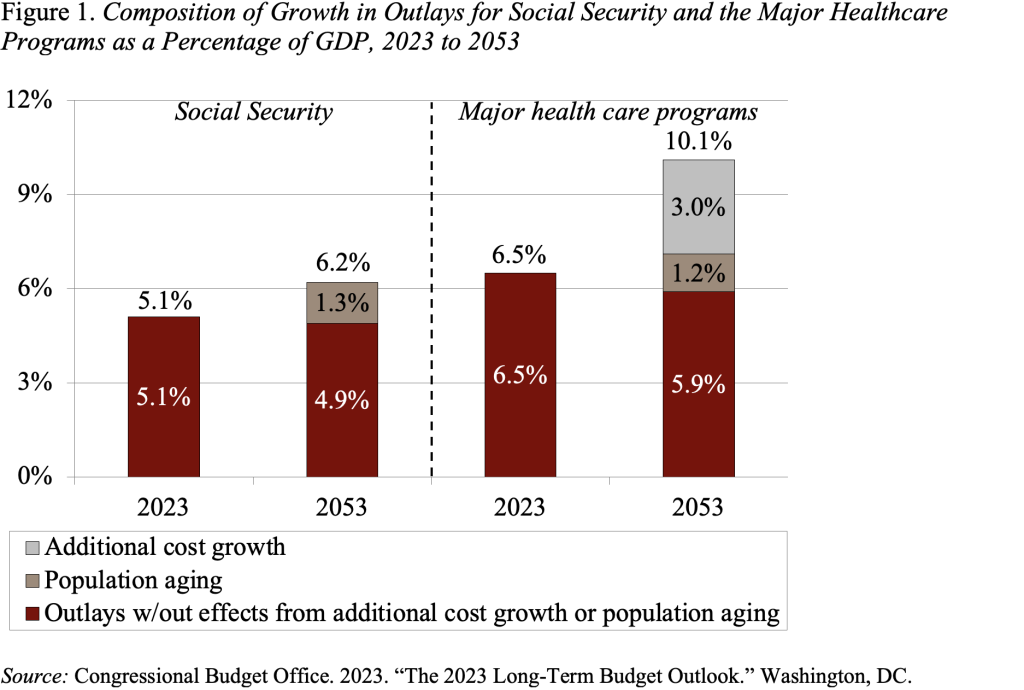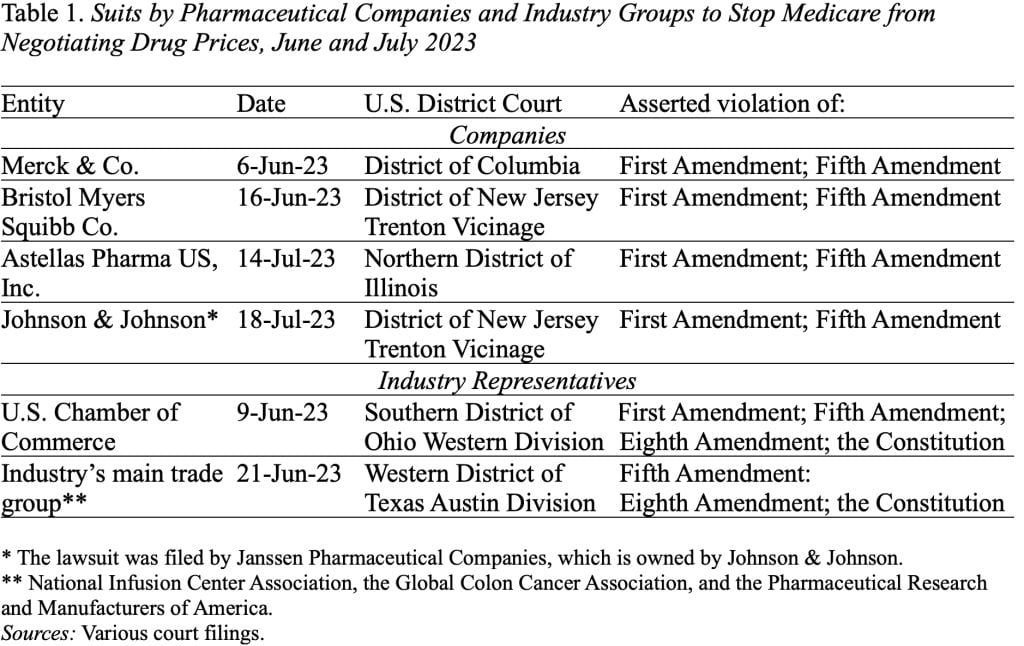
The Cost of Healthcare Is Out of Control, Hurting Programs for the Elderly and the Vulnerable
Alicia H. Munnell is a columnist for MarketWatch and senior advisor of the Center for Retirement Research at Boston College.
Big Pharma has a legislative blitz to prevent Medicare from negotiating drug prices.
Getting spending on Social Security, Medicare, and Medicaid “under control” is at the top of all the budgeteers’ agenda. While the intention sounds reasonable, spending on these programs is not out of control.
Social Security spending is slated to rise from roughly 5 percent of GDP to 6 percent of GDP between 2023 and 2053, according to the Congressional Budget Office (CBO). This increase is due entirely to the aging of the population (see Figure 1). And a 1-percentage-point increase is not a large change; defense spending went up and down by 2 percentage points between 2000 and 2023.

In contrast, spending on healthcare programs is slated to rise from 6.5 percent of GDP in 2023 to 10.1 percent in 2053. Why is that? A bit of the increase is from population aging, but the bulk is due to the rising cost of health care. We spend twice as much on health care as the average for the other OECD countries and have worse outcomes on key metrics such as infant mortality and obesity.
Why don’t we do something about out-of-control healthcare costs? Interesting you should ask; the Inflation Reduction Act took an important step in that direction by giving Medicare the power to negotiate drug prices with pharmaceutical companies – an activity that Medicare has been explicitly barred from doing up to now. And the legislation gives the government real leverage; if companies do not comply, they will face a substantial excise tax or they can withdraw all of their drugs from coverage under Medicare and Medicaid.
Allowing negotiation over prices is not unprecedented; the government routinely negotiates for other products and the Department of Veterans Affairs already negotiates drug prices with pharmaceutical companies. Nevertheless, just weeks before the government is scheduled to announce the first 10 drugs subject to negotiations, the pharmaceutical industry and their representatives have initiated a full-court press to halt the drug pricing program.
Lawsuits filed by the companies claim that forcing them to negotiate prices violates various aspects of the Constitution (see Table 1). According to the companies, the whole process is equivalent to an unjust taking of property, which is prohibited by the Fifth Amendment, and requiring companies to agree in writing that they are negotiating a fair price violates the First Amendment’s guarantee of free speech. In addition, industry groups argue that the excise tax for noncompliance violates the Eighth Amendment’s prohibition of excessive fines; the excise tax is not authorized by any power of Congress; and that the whole setup lacks requisite “intelligible principles” and necessary constitutional safeguards to ensure accountability, rationality, and fairness.

Through multiple suits with overlapping claims in jurisdictions across the country, the industry seems to be aiming for conflicting rulings in order to push the issue to the Supreme Court. In the meantime, the Chamber of Commerce has asked a federal judge in Ohio to issue an injunction that would block any negotiations while its case is being heard.
The bottom line is that one important step to controlling healthcare costs is being blocked by the industry.







